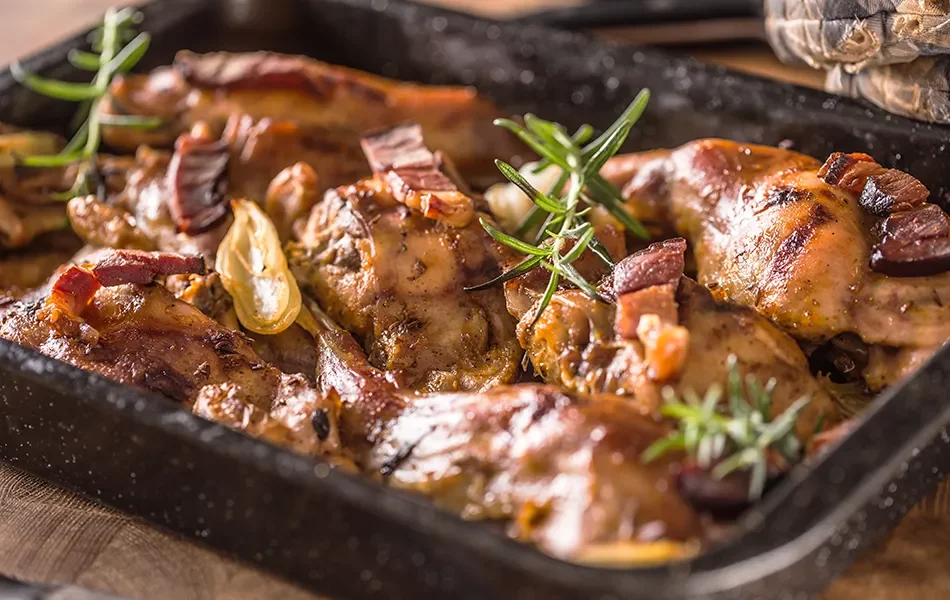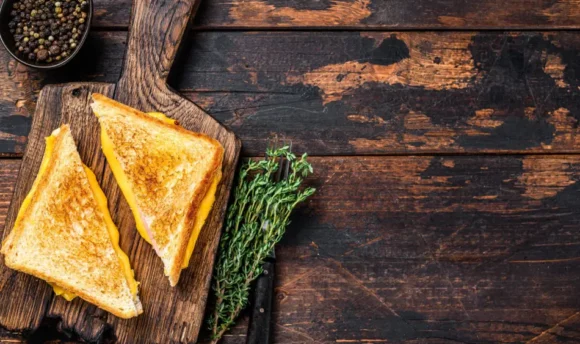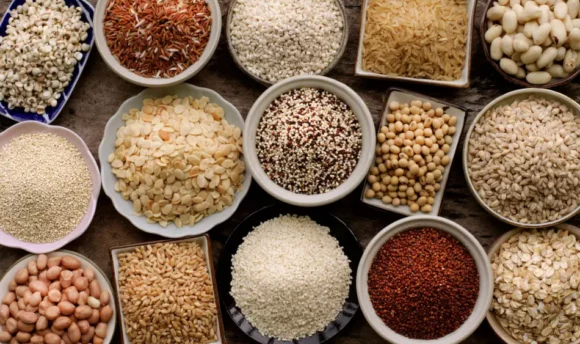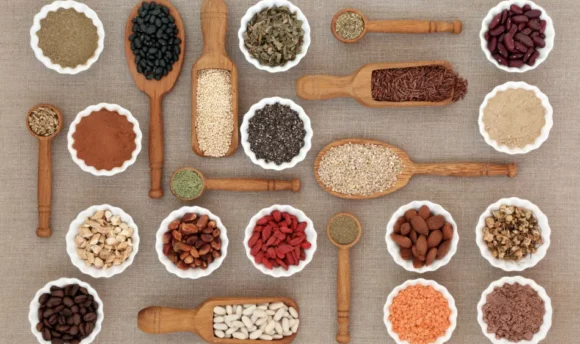Is Rabbit Meat Healthy? Benefits and Nutrition Facts
Rabbit meat holds many important nutrients for your health. Some people love including this food in their diet, but is it healthy? We answer whether rabbit meat is healthy and provide the benefits, disadvantages, nutrition facts, and an easy recipe to make at home.

Do you want to try rabbit meat on your diet?
This white meat isn’t a common dinner option, although it is known to offer a range of excellent health benefits. You might wonder whether rabbit meat is better than most red meats. To put it simply – yes, they are, but you should learn more about this animal product before trying it.
Rabbit has some impressive nutritional information. The high protein content could please strength training professionals, while the B vitamins may appeal to those with low energy. If you’re curious about the benefits and risks of eating rabbit, then you’ve come to the right place.
Just keep on reading to find out more nutrition facts about rabbit meat.
Is Rabbit Meat Healthy?
Yes, rabbit meat is a healthy food to have on your balanced diet. This meat is an excellent source of lean protein when it comes to fueling muscle growth. Plus, it contains other important minerals like calcium, phosphorus, vitamin B12, copper, and iron.
Rabbit has the classification of game meat, which means the food comes from land animals that aren’t farmed. Some people believe that game meat contains higher levels of protein, polyunsaturated fatty acids, and vitamins.
One prominent benefit of eating more rabbit meat is lean protein. This type of protein feeds your muscles essential amino acids for growth. People who do strength training need fresh protein from meats to achieve their goals instead of low-quality sources like protein shakes and bars.
Selenium is another mineral that can be found in rabbits. Consuming this mineral can protect your cells from damage and boost immune responses. There are also other similar foods with the same benefits, like pork tenderloin, whole eggs, chicken wings, wagyu beef, and mushroom.
Just remember that eating too much rabbit can lead to protein toxicity – a negative effect that causes your body to store metabolic waste compounds. You should monitor how much rabbit meat you consume throughout the week to ensure you’re following the dietary guidelines.
3 Health Benefits of Rabbit Meat
There are many benefits that derive from eating rabbit meat occasionally. Rabbit meat contains important nutrients, so it’s worth studying how these nutrients will support your health. Just remember to monitor how much you have to avoid going over your daily protein intake.
Below are some health benefits of rabbit meat:
#1 Source of iron
Your body needs iron for both growth and development. This mineral protects your bones while regulating cells that control natural functions. You should eat meat containing iron to prevent problems like iron deficiency, anemia, chronic fatigue, and insufficient red blood cell production.
#2 Good for your heart
Lean protein sources are beneficial for your heart. Plus, domestic rabbit contains fewer calories than other meats, meaning you won’t experience weight gain or high cholesterol. Phosphorus is another important mineral that prevents cardiovascular disease risk factors in the long term.
#3 Source of the B vitamins
B vitamins help to release energy from carbs and fats while transporting nutrients around the body. You need these vitamins to focus and keep a healthy brain functioning. Rabbit meat is one of the white meats containing the highest amount of B vitamins and other important nutritional properties.
Possible Disadvantages of Rabbit Meat
There are some negatives that derive from eating rabbit meat. Some people might prefer other meats that can be found at their local grocery store. The idea of eating wild rabbits isn’t for everyone, but it’s still important to outweigh the good and bad before buying new foods.
Here are the disadvantages of eating rabbit meat:
#1 Protein poisoning
There is such a thing as eating too much protein in your diet. Some people experience protein poisoning (“rabbit starvation”) when going overboard on a muscle-fueling meal plan. Common signs include nausea, low blood pressure, fatigue, headaches, vomiting, and loss of appetite.
#2 Very lean meat
Lean meats are meats with very little fat content. This might sound ideal, but your body still needs healthy fats to function properly. One study discovered that unsaturated fat reduces heart inflammation, replenishes the brain, strengthens bones, and improves skin health.
Nutrition Facts of Rabbit Meat
You should learn more about rabbit meat before incorporating it into your diet. This is especially important for people who want to monitor their macro intake while reaching their desired weight.
Below is the nutritional content of rabbit meat per 100 grams:
Nutritional value (per 100g)
| Calories/Nutrient (per 100g) | Amount |
| Calories (kcal) | 136 |
| Net Carbs (g) | 0 |
| Fiber (g) | 0 |
| Sugar (g) | 0 |
| Fats (Total) | 5.55 |
| Protein (g) | 20 |
| Cholesterol (mg) | 57 |
Source: https://fdc.nal.usda.gov/fdc-app.html#/food-details/172521/nutrients
Low in fat
Rabbit meat is suitable for those who want a low saturated fat intake. This meat only contains polyunsaturated fats – types of fatty acids that reduce the risk of heart disease. It’s also important to note that unsaturated fats won’t cause weight gain or ruin your progress.
Has no carbs
Anyone looking to follow the ketogenic diet may consume rabbit meat. Low-carb foods won’t increase your blood sugar levels or contribute to type 2 diabetes. Studies have proven that low-carb diets containing white meat could boost levels of HDL “good” cholesterol in the body.
High in protein
Rabbit meat is one of the best foods you can eat for protein. Consuming 100 grams of this meat will give you 20 grams of protein – enough to fuel muscle growth and recovery. It’s recommended that people get at least 50 grams of high-quality protein a day to stay healthy.
Healthy Rabbit Meat Recipe
There are plenty of healthy rabbit meat recipes you can follow at home. You should always choose ones that don’t contain chemical preservatives, added sugar, or saturated fats.
Here is one example of a rabbit meat recipe:
Ingredients
- 1 (2¼) pound rabbit (cut into small pieces)
- Salt
- Pepper
- 3 tbsp thyme
- 1 tsp rosemary
- ½ cup onion
- 2 garlic cloves
- ¼ cup all-purpose flour
- 2 tbsp extra virgin olive oil
- ⅔ cup sliced mushrooms
- 3 cups tomatoes
- 2 red chopped bell peppers
- 1 fresh bay leaf
- 16 black or green olives
How to prepare
- Sprinkle ground salt and pepper over the freshly cut rabbit pieces. Rub half of the thyme into those pieces, too, before lightly covering them with some flour.
- Next, heat the olive oil in a pan on low to medium heat. Once it is hot, put the rabbit pieces in the pan and cook for 2–3 minutes or until they appear lightly browned.
- Remove the cooked rabbit pieces and put them in another bowl.
- You can now add the onions, thyme, sliced bell peppers, rosemary, mushrooms, and garlic to the heated pan.
- Reduce to low/medium heat whilst those ingredients soften.
- Now, put the rabbit pieces back into the pan with some chopped tomatoes and fresh bay leaf.
- Cover the pan with a lid and cook for 35–40 minutes.
- Uncover the pan and add your chosen green or black olives. Make sure to leave the lid off.
- Turn the heat to high and cook for several minutes or until the sauce has reduced.
- Check the taste of the seasoning and add more salt or pepper if needed.
- Remove from heat and serve with pasta or rice dishes.
For more guidance on healthy recipes, consider trying the DoFasting app. You can discover over 5,000 meal plans that are nutrient-dense and low in calories. People on the keto diet or those who want to fast may also use this app to guide their personal weight loss goals.

- Useful progress tracker and calendar
- Calorie tracker to track daily caloric intake
- Over 5,000 nutritious recipes
FAQs
No, rabbit meat is usually considered white meat due to its appearance and texture. This is also because it has a pale color once cooked. Some people believe that rabbit is defined as white under culinary arts and red meat if you define it using nutritional science facts.
Rabbit meat is surprisingly healthier than certain types of fish. It is high in vitamin B12, iron, and protein, compared to fish like salmon or herring. This doesn’t mean you should choose lean meat over fish sources, as both food categories are important for keeping you healthy.
Yes, rabbit meat is tender and easy to digest. Its white meat is similar to chicken in terms of the texture and how fast it gets broken down in your stomach. People with a sensitive gut should stick to white meat like rabbit, chicken, turkey breast, fish poultry, and duck meat.
A Word From a Nutritionist
People who eat rabbit meat usually need something high in protein for their diet. Cooking rabbit meat with other protein-rich foods can fuel muscle growth and even promote weight loss. One study found that consuming lean meat on a balanced meal plan can boost your overall metabolism.
You should only buy fresh rabbit meat. There are some branded foods that add chemical preservatives and other unhealthy ingredients. If you want to fuel your body with essential nutrients, prepare the raw meat yourself and use nutrient-dense seasonings.
Of course, domesticated rabbit meat isn’t the only source of protein. Chicken sausages, whole eggs, legumes, roast beef, and salmon can keep you healthy. Eating high-protein foods is great for muscle growth, but they’re also great at curbing hunger and maintaining a good weight.
Conclusion
Rabbit meat is healthy due to its high protein and vitamin content. People looking to build muscle can eat more of this food to fuel their growth. Just be aware that consuming too much protein on a balanced diet could lead to headaches, nausea, and low blood pressure.

















































 Select your language:
Select your language: 








